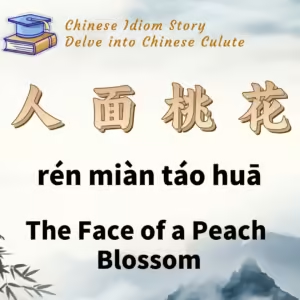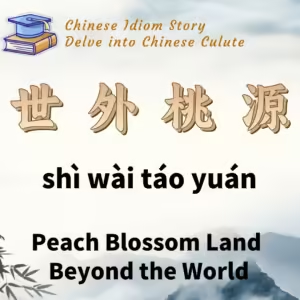
Chinese Idiom: 桃李不言,下自成蹊 (Tao Li Bu Yan, Xia Zi Cheng Xi)
English Translation: The peach and plum trees don’t speak, yet a path forms beneath them.
pīn yīn: táo lǐ bù yán, xià zì chéng xī
Idiom Meaning: This idiom suggests that genuine, sincere behavior influences others without the need for boasting or self-promotion. The word “蹊” refers to a small path.
Historical Source: The idiom originates from “The Biography of General Li” in the Records of the Grand Historian (Shiji), written by Sima Qian.
Idiom Story:
General Li Guang, a famous military figure from the early Han Dynasty, was known not only for his courage in battle but also for his integrity and humility. Despite serving as an official for more than forty years, Li Guang lived a simple life with no extra wealth. He would often share his rewards with his soldiers and ate and drank alongside them, showing no sign of superiority.
Li Guang’s behavior during military campaigns was especially notable. When supplies were scarce, he would not drink water until every soldier had water, and he would not eat until all had eaten. His kindness and fairness toward his troops made him deeply respected by his soldiers, who willingly followed his leadership.
Sima Qian, after writing Li Guang’s biography, praised the general’s sincerity and honesty. He remarked, “I observed General Li, a humble man who rarely spoke. Yet, when he passed away, people from all over, whether they knew him or not, mourned his death. His genuine and loyal heart earned the respect of many, far more than the eloquent scholars.”
Sima Qian then referenced a popular saying: “The peach and plum trees do not speak, but people admire their fruits, and a path forms beneath them from all the visitors.” This means that even without speaking or promoting themselves, those who are sincere and virtuous naturally attract admiration and respect from others, much like how the beauty of peach and plum trees draws people to them.
The idiom “桃李不言,下自成蹊” has since been used to describe individuals whose actions and character inspire others without the need for words or self-promotion, illustrating how virtue and integrity can naturally earn respect and admiration.






